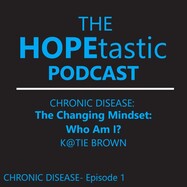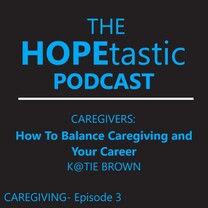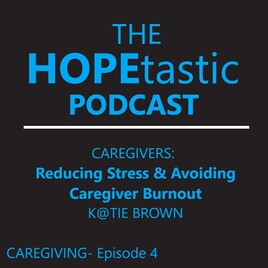Today I’m talking about Chronic Disease.
Whether that’s cancer or lupus or liver disease- any chronic condition that you have to live with and survive can relate to the topic today. The changing mindset.
I happen to have had several chronic diseases. 5 years ago, I was surprisingly diagnosed with a genetic liver disease that impacts my immune system. I also developed arthritis, borderline lupus, type 3 diabetes and Hashimoto’s thyroiditis during that time too.
I’m happy to say in the last year I no longer have glucose intolerance or severe problems with arthritis or lupus and my thyroid disease is controlled- but it’s been a long road. And I’m still a stage 4 liver disease patient in a clinical trial.
I am more of a type A personality than a type B. I had an abundant amount of energy, an amazingly rewarding career and an active family.
HOW in the HECK could I be a sick person?
When I told people about my disease, I always mentioned that before my “surprise dx” that I was perfectly healthy- aside from that 1 thyroid pill a day I took for a low functioning thyroid.
I’m not a “sick” person. I support “sick” people!
I. Am. Not. A. Sick. Person.
But I was. I had become one.
I was tired- not just “I’ve had a busy day” tired, but fatigued to the bone tired. My skin was rash-y and ashen and I had developed some acne from the new medications. My joints and muscles hurt- a lot. I suffered from leg cramps and neuropathy. Insomnia at night because of the pain. I stopped going out. I didn’t enjoy crafting or cooking.
I struggled to let anyone help me. I’m stubborn to a fault and won’t ask for help. One productive day of house cleaning meant two days in bed. WHAT in the HECK was happening to me?
I was living a sick person’s life. I was a sick person.
In my mind I was a healthy person. I was capable and independent and strong. My nickname was Ninja for heavens sake!
I had to change my mindset and reconcile myself to the here and now. That didn’t mean giving up…it meant giving in to my current situation. If I needed help, I had to learn how to ask for it. If I worried about pain, I had to recognize that it would be best if I stayed home. I had to relearn my limitations and use good physical moments sparingly. I was different now. I had more empathy and sympathized with the patients I supported. I no longer held myself to such high expectations and I started to celebrate small accomplishments.
I had to learn who this new me was. I was not my disease but my disease limited me. What did this Katie like to do? What brought this Katie joy and happiness? What kind of people did this Katie want to surround herself with? What was most important to this new me?
I hit my lowest point and then I started my climb back up.
Long story short- 18 months ago I aggressively sought out a clinical trial. It’s a double-blind trial but I know it’s working and I’ve gotten stronger and healthier. I’ll never be the same person I was before- but I’m a better person.
While I’m not as physically strong as the old me was, I’m stronger in mind and soul than I’ve ever been right now, today.
What about you?
What’s your mindset?
Who are you today?
Are you defined by your disease or have you challenged yourself to try to overcome it?
I want to hear from you.
Until next time, may your coffee kick in before reality does
KatieB
Listen to the podcast here: https://anchor.fm/katiebrown/episodes/CHRONIC-DISEASE-The-Changing-Mindset-e4qhcb
Whether that’s cancer or lupus or liver disease- any chronic condition that you have to live with and survive can relate to the topic today. The changing mindset.
I happen to have had several chronic diseases. 5 years ago, I was surprisingly diagnosed with a genetic liver disease that impacts my immune system. I also developed arthritis, borderline lupus, type 3 diabetes and Hashimoto’s thyroiditis during that time too.
I’m happy to say in the last year I no longer have glucose intolerance or severe problems with arthritis or lupus and my thyroid disease is controlled- but it’s been a long road. And I’m still a stage 4 liver disease patient in a clinical trial.
I am more of a type A personality than a type B. I had an abundant amount of energy, an amazingly rewarding career and an active family.
HOW in the HECK could I be a sick person?
When I told people about my disease, I always mentioned that before my “surprise dx” that I was perfectly healthy- aside from that 1 thyroid pill a day I took for a low functioning thyroid.
I’m not a “sick” person. I support “sick” people!
I. Am. Not. A. Sick. Person.
But I was. I had become one.
I was tired- not just “I’ve had a busy day” tired, but fatigued to the bone tired. My skin was rash-y and ashen and I had developed some acne from the new medications. My joints and muscles hurt- a lot. I suffered from leg cramps and neuropathy. Insomnia at night because of the pain. I stopped going out. I didn’t enjoy crafting or cooking.
I struggled to let anyone help me. I’m stubborn to a fault and won’t ask for help. One productive day of house cleaning meant two days in bed. WHAT in the HECK was happening to me?
I was living a sick person’s life. I was a sick person.
In my mind I was a healthy person. I was capable and independent and strong. My nickname was Ninja for heavens sake!
I had to change my mindset and reconcile myself to the here and now. That didn’t mean giving up…it meant giving in to my current situation. If I needed help, I had to learn how to ask for it. If I worried about pain, I had to recognize that it would be best if I stayed home. I had to relearn my limitations and use good physical moments sparingly. I was different now. I had more empathy and sympathized with the patients I supported. I no longer held myself to such high expectations and I started to celebrate small accomplishments.
I had to learn who this new me was. I was not my disease but my disease limited me. What did this Katie like to do? What brought this Katie joy and happiness? What kind of people did this Katie want to surround herself with? What was most important to this new me?
I hit my lowest point and then I started my climb back up.
Long story short- 18 months ago I aggressively sought out a clinical trial. It’s a double-blind trial but I know it’s working and I’ve gotten stronger and healthier. I’ll never be the same person I was before- but I’m a better person.
While I’m not as physically strong as the old me was, I’m stronger in mind and soul than I’ve ever been right now, today.
What about you?
What’s your mindset?
Who are you today?
Are you defined by your disease or have you challenged yourself to try to overcome it?
I want to hear from you.
Until next time, may your coffee kick in before reality does
KatieB
Listen to the podcast here: https://anchor.fm/katiebrown/episodes/CHRONIC-DISEASE-The-Changing-Mindset-e4qhcb



 RSS Feed
RSS Feed
